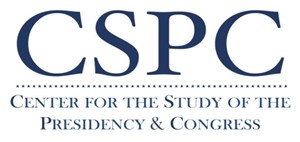
Source: Center for the Study of the Presidency & Congress
New CSPC Study By Top Health Experts Points to Need for SNAP (Food Stamp Program) to Tackle Obesity Crisis in Addition to Food Insecurity
Comprehensive Study Urges Public Health Approaches and Innovations That Make SNAP a 21st Century Program to Address Today's Dual Crises
WASHINGTON, July 18, 2012 (GLOBE NEWSWIRE) -- Underscoring the need to protect and enhance the effectiveness of the Supplemental Nutrition Assistance Program (SNAP) – currently a target of budget cut debates on Capitol Hill – leading public health experts today called for a focused effort to strengthen the program to address the nation's now dual crises of food insecurity and obesity. SNAP, a $76 billion dollar federal food assistance program, provides its 46.2 million participants with resources to purchase food (while excluding alcohol, tobacco, food eaten in the store, hot prepared foods, and dietary supplements). Citing the fact that 50 percent of SNAP participants are children – with 1 in 2 children participating in the program before the age of 19 – the report emphasizes the importance of updating SNAP so that it can fulfill the promise of its recent name change from the Food Stamp Program to the Supplemental Nutrition Assistance Program.
"First and foremost, the current SNAP budget should be preserved – we cannot leave millions of Americans without this vital safety net," said Susan Blumenthal, M.D., M.P.A., Former U.S. Assistant Surgeon General and Director of the Health and Medicine Program at the Center for the Study of the Presidency and Congress (CSPC), the organization that conducted the study with the Harvard School of Public Health and other partners. "But the absolute next priority is to strengthen nutrition in SNAP – the fact that 1 in 7 Americans are food insecure while two-thirds of adults and one-third of children are overweight or obese reveals a perilous American paradox that SNAP must address."
The "SNAP to Health" report released today identifies seven areas for potential program improvements, ranging from lowering the cost of healthy foods for SNAP participants and discouraging the purchase of high-calorie/low-nutrient foods to increasing the distribution frequency of SNAP benefits. The report also identifies a 10-point menu of recommendations to refresh and update policy approaches, including: incentivizing the purchase of fruits and vegetables; strengthening stocking standards for SNAP retailer certification to include a greater variety of healthy foods; collecting data on foods purchased with SNAP benefits to increase the effectiveness and transparency of the program; providing states with greater
flexibility to test fresh approaches to promote public health in SNAP; and pilot-testing specific strategies to improve children's nutrition in SNAP, given the high participation among children under the age of 19.
"The time has come for a strategic, coordinated, public health-driven strategy for SNAP – to not move in this direction is an enormous missed opportunity to meet two dire needs in this country in one significant fell swoop," said Walter Willett, M.D., Dr. P.H., Chairman of the Department of Nutrition at the Harvard School of Public Health.
Grounded in scientific evidence from the most comprehensive public health study of the program to date, the "SNAP to Health" report provides a roadmap for policymakers, public health professionals, educators, advocates, researchers and industry to work jointly to strengthen and update the program. The focus is on a range of innovations that build on the foundation that SNAP provides, all toward helping to reduce widespread diet-related health disparities affecting low-income Americans, including the working poor, children, and more than 1.5 million veteran households.
"When the Food Stamp Program was established in 1964, obesity affected only a small percentage of the U.S. population," said Project Director Dr. Susan Blumenthal, going on to underscore, "Today, with 68 percent of Americans overweight, obesity is fueling a tsunami of chronic diseases that undermines our country's health, economy and national security."
Marion Nestle, Ph.D., M.P.H., professor and former chair of the Department of Nutrition, Food Studies, and Public Health at New York University noted, "The WIC (Women, Infants and Children) Program was updated in 2009 to align with the Dietary Guidelines for Americans and improve its nutrition standards, making it easier for participants to purchase fruits and vegetables, for example – it's time for SNAP to do the same and help address today's needs."
To study the feasibility of enhancing nutritional policies in SNAP and to develop innovative strategies to address the pressing 21st century public health challenges of food insecurity and obesity, CSPC convened an interdisciplinary team of experts who, together with the Center's Health and Medicine Program staff, conducted an in-depth scientific literature review of SNAP, a survey of key stakeholders and a comprehensive statistical analysis of data specifically related to children from the 1999-2008 National Health and Nutritional Examination Survey (NHANES).
The SNAP to Health initiative seeks to identify the barriers, best practices, and promising innovations for improving nutrition within the Federal Supplemental Nutrition Assistance Program (SNAP) in time for the program's re-authorization in the 2012 Farm Bill. Its interactive website, http://www.snaptohealth.org, serves as a national forum for public discourse on improving nutrition in SNAP in advance of SNAP's reauthorization in the upcoming Farm Bill and beyond.
The Center for the Study of the Presidency and the Congress is a non-profit, non-partisan policy and education institution dedicated to generating innovative solutions for the nation's challenges.
CONTACT:
Berry Brady, 703.609.6643
berry@slfstrategies.com
This information was brought to you by Cision http://www.cisionwire.com
http://www.cisionwire.com/center-for-the-study-of-the-presidency---congress/r/new-cspc-study-by-top-health-experts-points-to-need-for-snap--food-stamp-program--to-tackle-obesity-,c9285669
The following pictures are available for download:
| [Image] | Center for the Study of the Presidency Congress |
| [Image] | SNAP to Health graphic |